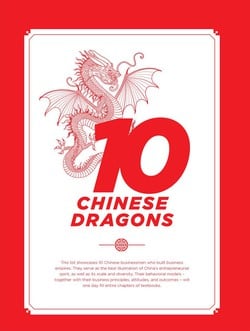10 Chinese Dragons
This list showcases 10 Chinese businessmen who built business empires. They serve as the best illustration of China’s entrepreneurial spirit, as well as its scale and diversity. Their behavioral models – together with their business principles, attitudes, and outcomes – will one day fill entire chapters of textbooks.
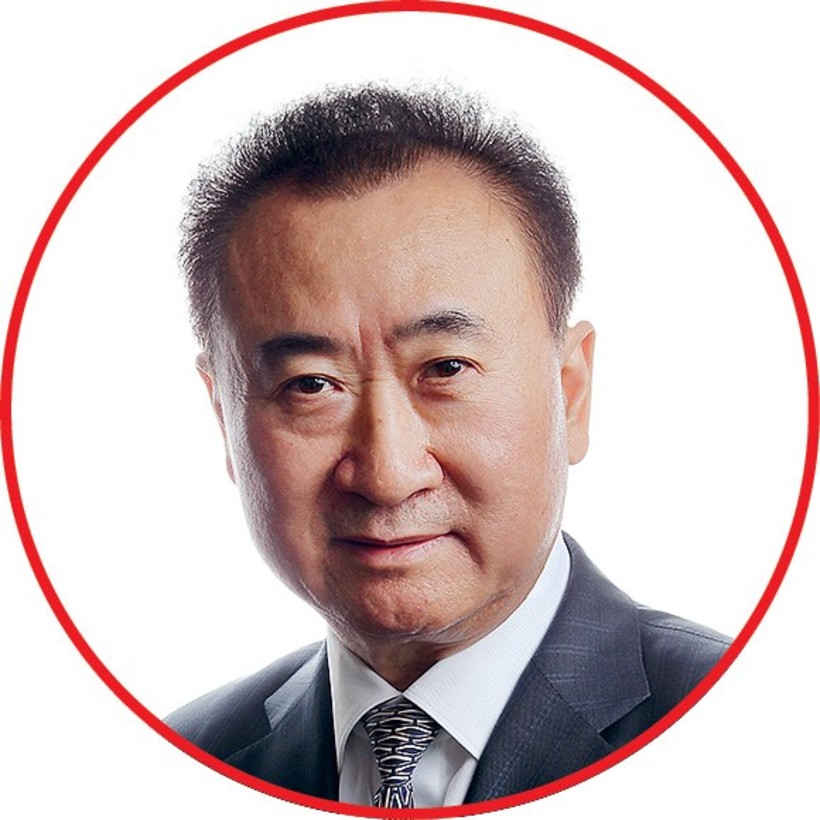 Wang Jianlin
Wang Jianlin
Dalian Wanda Group,
Commercial Property
The founder and chairman of the board at Dalian Wanda Group made his fortune building shopping malls, hotels, and entertainment centers. According to the Bloomberg Chinese Rich List and the Asia Rich List dated 1 May 2015, Wang is the richest man in China. His wealth is estimated at $38.1 billion. He runs the country’s most successful company, using methods he learned during his 17 years of military service.
Wang Jianlin’s father is a veteran of the Chinese Red Army. In 1970, when Wang was 15, his father sent him to the People’s Liberation Army where he went on to serve in Ein Lalian, a field training boot camp with long marches and extremely rigorous physical demands. Later on, during Deng Xiaoping’s military reform, 1 million Chinese servicemen were decommissioned; Jianlin was one of them. He went on to work in the Dalian city administration. Several years later, he headed up a development company that started rebuilding city slums and, soon thereafter, he founded Dalian Wanda Group. Initially, the company built shopping malls, but it later moved on to premium offices and residential real estate. In 1993, the Chinese government decided to cool the real estate boom, and prohibited banks from financing any further construction projects. Moreover, bankers were instructed to demand early loan repayments.
Wang Jianlin went to the bank 50 times trying to get a loan, and stood outside the manager’s office all day – but to no avail. He suffered a nervous breakdown and ended up passing out. Even though he had to spend a week in the hospital, his company survived. Not only that, Dalian Wanda Group became China’s first interregional developer in 1993. Jianlin believes that his decisiveness and ability to work well under stress come from his experience in the army. He emphasizes that he deliberately chose a military management style for his company. If Jianlin’s orders are not carried out immediately, the subordinate at fault is fined. Wang Jianlin’s private life also falls into the ‘military discipline’ category – he goes to bed at 11 p.m. and neither smokes nor drinks. Today, more than 100 Wanda Plaza centers have been built in China, complete with shops, hotels, apartments, and entertainment centers. Jianlin’s interests have shifted to include the entertainment industry. Dalian Wanda Group also went into the resort business and invested 20 billion renminbi (over $3 billion) in Wanda Changbaishan International Ski Resort. In 2012, Jianlin’s company paid $2.6 billion to acquire AMC Entertainment, a movie theater giant based in the United States. An avid football fan, Jianlin also bought 20% of the Spanish Atlético Football Club. In China. he is planning to invest tens of billions of dollars into building a local Hollywood and Disneyland franchise.
His global objective is well known. In an interview, Jianlin said that he wanted to reach a turnover of $99 billion (600 billion renminbi) by 2020, retire, and dedicate his time to writing his memoirs.
Stay close to the government and far from politics
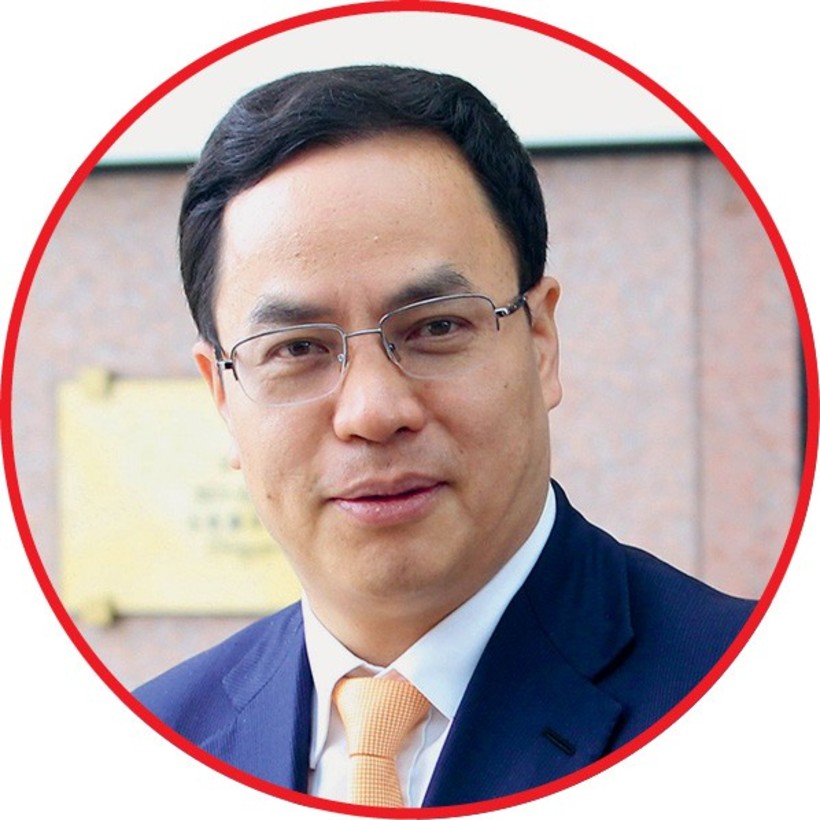 Li Hejun
Li Hejun
HANERGY HOLDING GROUP LIMITED,
Solar Power Transformation Technologies, Hydro Power
In 2014, the Chairman of the board of directors at Hanergy Holding Group Limited made his debut on Forbes’ China Rich List. This year, the magazine estimates the 48-year-old businessman’s wealth at $31.3 billion.
Hejun grew up in Hainan and made his initial capital selling electronics in Beijing. Later he moved to hydropower generation. In 1994, he founded Hanergy Holding Group Limited. With over 10,000 employees, the company is one of China’s leaders in alternative energy production. It manages several hydropower plants, including one of the world’s largest plants located in Yunnan province. Its subsidiary, Hanergy Thin Film Power Group, is the world’s leading manufacturer of thin film solar batteries.
After the 2008 financial crisis, oil prices rose sharply and green energy became hugely popular among investors. Many governments, including China’s, started incentivizing businesses that worked with renewable energy sources. As a result, the Chinese market for solar panels grew 500% in 2012, and the trend continues.
From late November 2014 until March 2015, Hanergy Thin Film Power Group’s shares nearly tripled in value. Many experts expressed doubts on account of such rapid growth. Li Hejun denies any manipulation of these numbers, and claims that all transactions between Hanergy Thin Film Power Group and Hanergy Holding Group have been fully approved by the Hong Kong Exchange. He says the high market value of Hanergy Thin Film Power Group can be explained by the public’s recognition of the great promise of thin film solar batteries. The investors’ excitement however, gave way to disappointment. In late May, Hanergy’s shares abruptly lost half their value in just half an hour. As a result, Hejun lost $15 billion of his personal wealth just as quickly.
In 2012 and 2013, Hanergy acquired several American and European solar panel manufacturers, and in November 2014, the company set up a subsidiary in India. In 2014, Hejun published his first book, entitled China’s New Energy Revolution.
Each revolution witnessed the rise of a great power – first the United Kingdom, then the United States, and now the third revolution could be led by China. New clean energies – wind, hydraulic, and solar – will replace previous ones
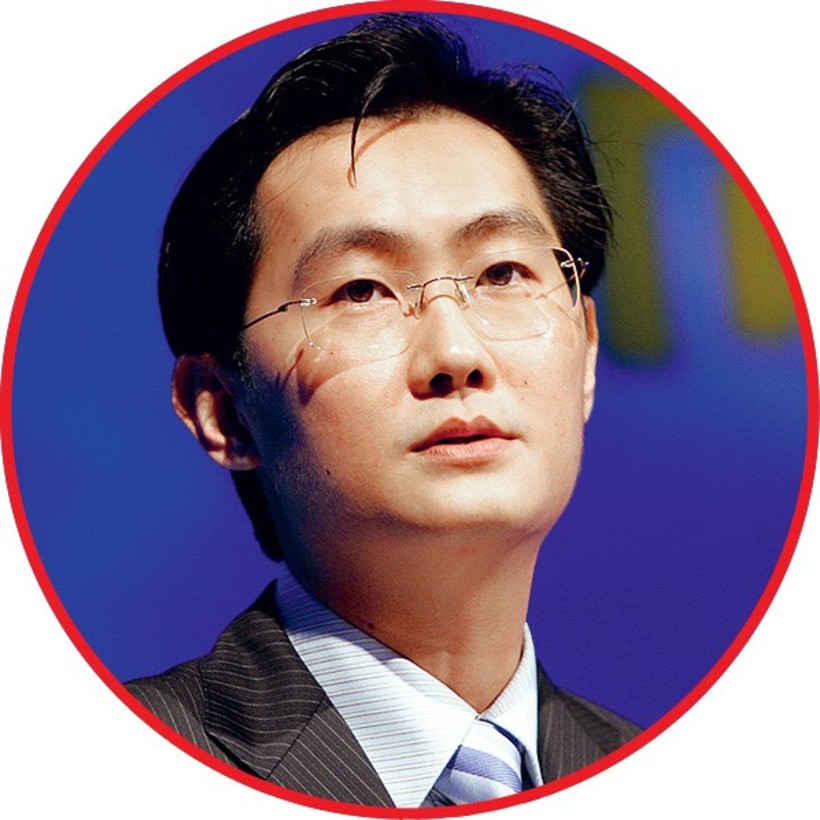 Ma Huateng
Ma Huateng
Tencent,
Internet Technologies
Ma Huateng, better known in the West as Pony Ma, is the Chairman of the Board of Directors and CEO of Tencent Inc. For many years, he featured prominently on lists of China’s wealthiest people, according to both Harun and Forbes magazine. In 2007 and 2014, Time magazine called him one of the most influential people on the planet.
Pony Ma was born in Guangdong province in 1971. He graduated from Shenzhen University with a major in computer science. For several years, Ma worked for a communications company. The future billionaire used to develop software for pagers. He later founded Tencent Inc. in Shenzhen with a group of friends. Their first product was Tencent QQ, an instant messaging software service.
Tencent now owns virtually all local, online service ‘doppelgangers’: QQ and WeChat messengers (football superstar Lionel Messi participated in an advertising campaign for the latter), a social network called Qzone, Tencent Weibo (the equivalent of Twitter), and TenPay, a payment system. The QQ Messenger logo, a little penguin in a red scarf, can be found on virtually every gadget in China. As early as 2012, QQ Messenger already had more than 1 billion users. Tencent also opened its QQ.com portal, and expanded its operations to the online games market.
Pony Ma does not like publicity, and refers to himself as a strategist. He lets his competitors release their state-of-the-art technologies, and then Tencent improves upon them and becomes a leader in China. This talent of his has made him famous as a copycat developer (a developer of product copies). Pony Ma personally tests and monitors all of Tencent’s latest IT releases. According to him, new business ideas appear every day in China, but they have to be backed by determination, engagement, and aspiration in order to be successful.
There is not a single company in the world that creates something entirely on its own – to some degree, everything has already been done by someone else. Those who manage to integrate every idea emerge as winners
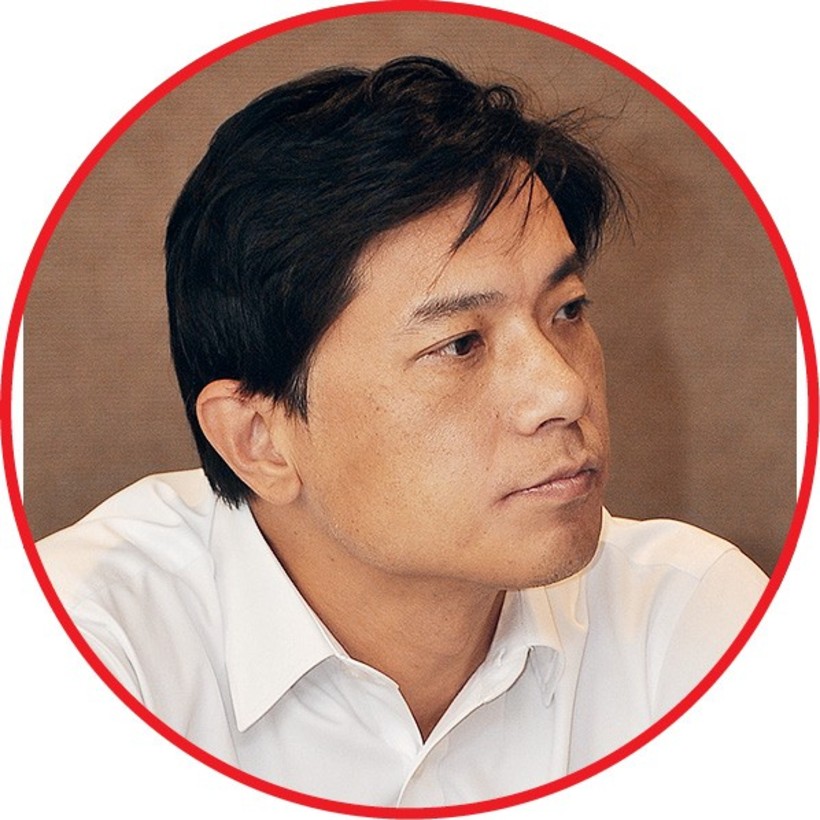 Robin Li
Robin Li
Baidu,
Internet Search Engine
Baidu’s founder, CEO, and Chairman of the Board of Directors was born in 1968 to a family of workers in a small town near Beijing. He became wealthy by competing with Google. In 2015, Forbes magazine named him the fifth richest billionaire in China, with a net worth estimated at $15.3 billion. Li studied computer science at Beijing University and later obtained a Master’s degree from New York State University. After graduating, he went to work for IDD, a subsidiary of Dow Jones Company. He later took a job with Infoseek, the developer of one of the first search engines.
After returning to China in 2000, he teamed up with his friend Eric Su, a biochemist, and founded Baidu (which translates as ‘dream search’). Their start-up capital of $1.2 million was provided by American venture funds. One year later, Baidu received $10 million more in venture investments. By late 2002, Baidu indexed 50% more Chinese websites than any of its competitors. Two years later, Baidu became the leading search engine in China. On the day of its NASDAQ IPO, the company’s shares broke a 10-year record – by the time the trading session was over, their value had more than quadrupled. At that point, Li became a cult figure in China.
Baidu’s main objective has always been to compete with Google (it may come as a surprise, but the American Internet giant held a 2.6% stake in Baidu until 2006, when it sold the company so it could get a license to operate in China). Back when the corporation masterminded by Brin and Page was one of Baidu’s shareholders, Robin Li’s company released a video clip showing a kung fu master winning an argument against a Westerner. As the white man cringes at having lost the argument, the marquee on the bottom of the screen reads: ‘Baidu understands Chinese better.’
After a series of major scandals resulting from mixing advertisements and search results (involving medical companies), Li moved his search engine to a new platform, called the Phoenix Nest. That move solved the problem. Today, Baidu specialists are working on search engines capable of returning results based on pictures and audio recordings.
The company has also set its sights on building a driverless car. Though no specific release dates have been announced, Bloomberg reports that it could be presented as early as 2015. It seems that it is of paramount importance for Li to beat Google to the punch – the American giant is promising to launch mass production of a driverless vehicle in the next five years.
Many Chinese people had doubts that knowledge truly meant power in a market economy. I think I managed to change their minds
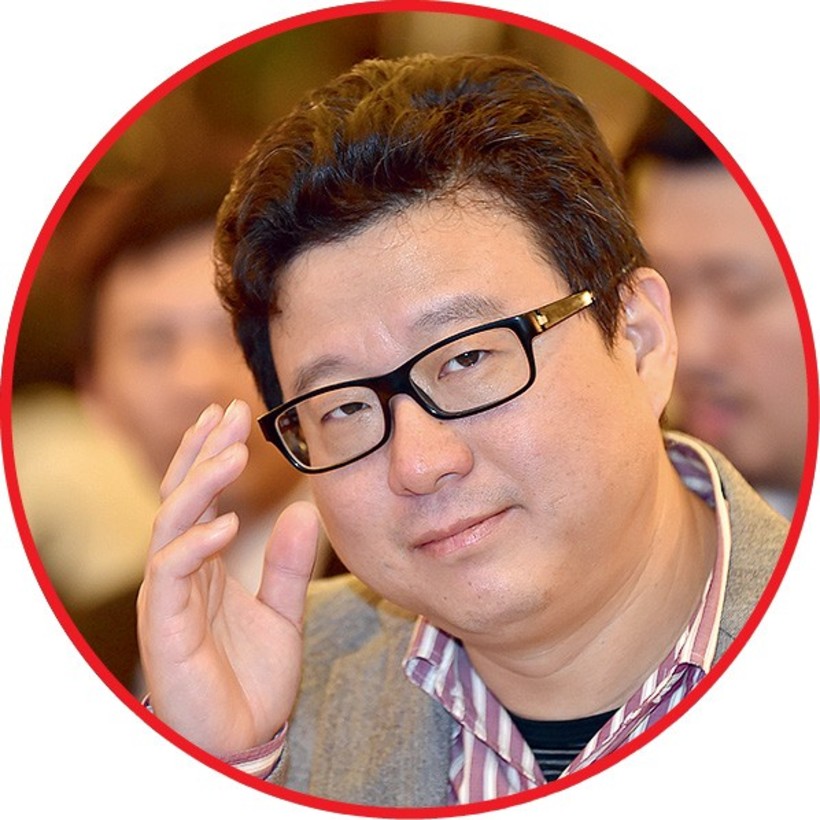 William Ding
William Ding
NetEase,
Online Games
As an adolescent, this future billionaire had a keen interest in electronics, and even assembled simple devices such as radio receivers. This foreshadowed his future specialty – he received a degree from the University of Electronic Science and Technology of China. However, halfway through his studies, Ding’s interests shifted to programming. In 1997, at the age of 26, he founded NetEase. During the early days, the company employed only a dozen programmers. Ding himself acted as both CEO and accountant; he sought out orders and helped fill them. His start-up was soon successful – Ding invented China’s first free bilingual mail service, which enabled users to send and read messages in Chinese.
NetEase later made a move into the gaming industry. One of Ding’s first steps was to adapt American computer games. He signed a license agreement with world-renowned Blizzard studios, and translated their games into Chinese. However, soon thereafter, NetEase started developing games in-house and selling them outside of China. Today the company employs more than 8,000 people. Its greatest success to date came in 2014 when NetEase released ‘Hearthstone: Heroes of Warcraft’ on the domestic market.
Now Ding is preparing to scale new heights. The company is translating some of its most successful games into several languages and is looking to export them. To facilitate this move, NetEase is planning to open a new US headquarters in California in 2015. Its first game, Speedy Ninja, is already available from AppStore and Google Play.
NetEase did not have an easy time on the stock market. Since its NASDAQ IPO, the price ranged from a mere 95 cents to a record $70 per share. Today the company is valued at $15 billion, and Ding’s own fortune is estimated at nearly $5 billion. In the meantime, NetEase has started another project unrelated to games – the company is investing around $200 million in pork production, and already owns farms with several thousand pigs.
Wealth means two things to me: money and talent. What I’ve got today belongs to yesterday, but what’s in my mind creates the future
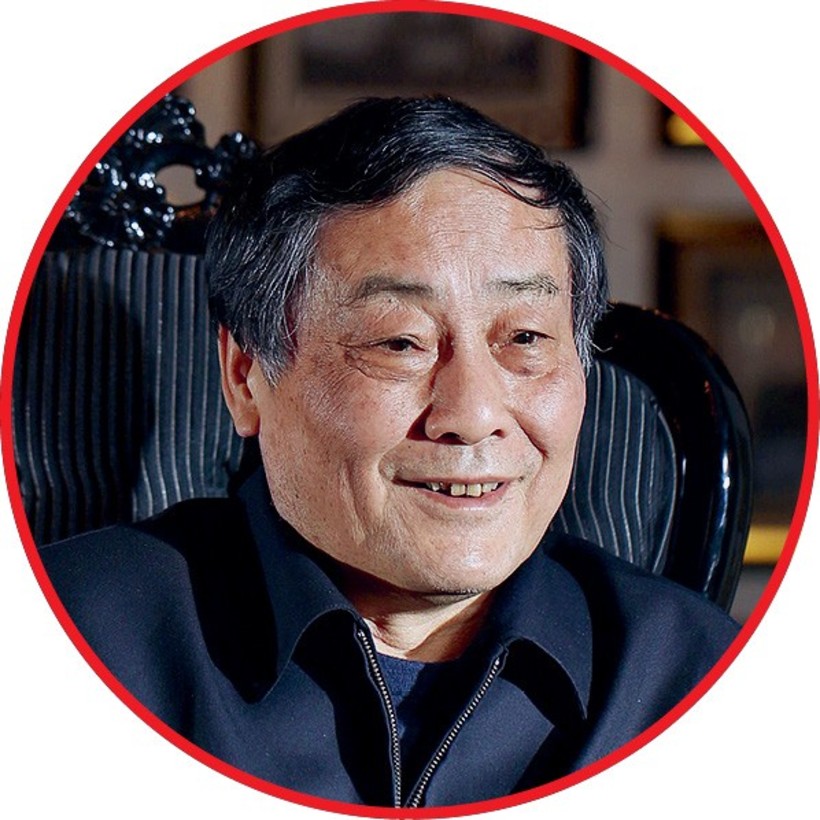 Zong Qinghou
Zong Qinghou
Hangzhou Wahaha Group, Beverages
China’s richest man in 2012 was Zong Qinghou, whose net worth is valued at $12 billion. He is the founder and CEO of Hangzhou Wahaha Group, a name much less serious than his wealth implies (‘Wahaha’ can be loosely translated as ‘ha-ha-ha’). However, behind this rather silly name hides the region’s largest beverage manufacturer. Qinghou was forced to drop out of high school during the Cultural Revolution in China. Along with many kids his age, he had to work the fields to help the peasants. He only went into business in the 1980s, after obtaining a license to sell ice cream and beverages in schools in his native Hangzhou. In the early days, he sold milk, and later soft drinks, ice cream, and paper.
He and two schoolteachers founded Wahaha in 1987, having obtained a loan of 22,000 renminbi. Their first products were milk-based beverages, which were surprisingly popular and were quickly sold across the country. Soon thereafter, Qinghou discovered his own recipe for success (and wealth), and he moved into marketing bottled drinking water. Bottled water is a sought-after commodity in China, where running water is still not available in every home. Wahaha received a major boost in 1996 when the company set up a joint venture with Danone, a Franch food giant.
Despite their success, Wahaha Group remains a family business. Qinghou’s wife, Shi Youzhen, is still heading up the company’s procurement department. His daughter, Kelly Zong, carries a U.S. passport in her purse, but is gradually getting more involved with the family business.
People close to Zong Qinghou say that he is easy to talk to, but he is not one to mince words. He is capable of working for days on end, and often sleeps in a bed in his own office. He smokes cheap cigarettes and never wears his $48,000 Vacheron Constantin watch in public due to his firm belief that humility is a virtue. On several occasions, tax authorities have suspected him of tax evasion, but none of the charges have stuck.
The government is taking too much money and leaving too little for the ordinary people
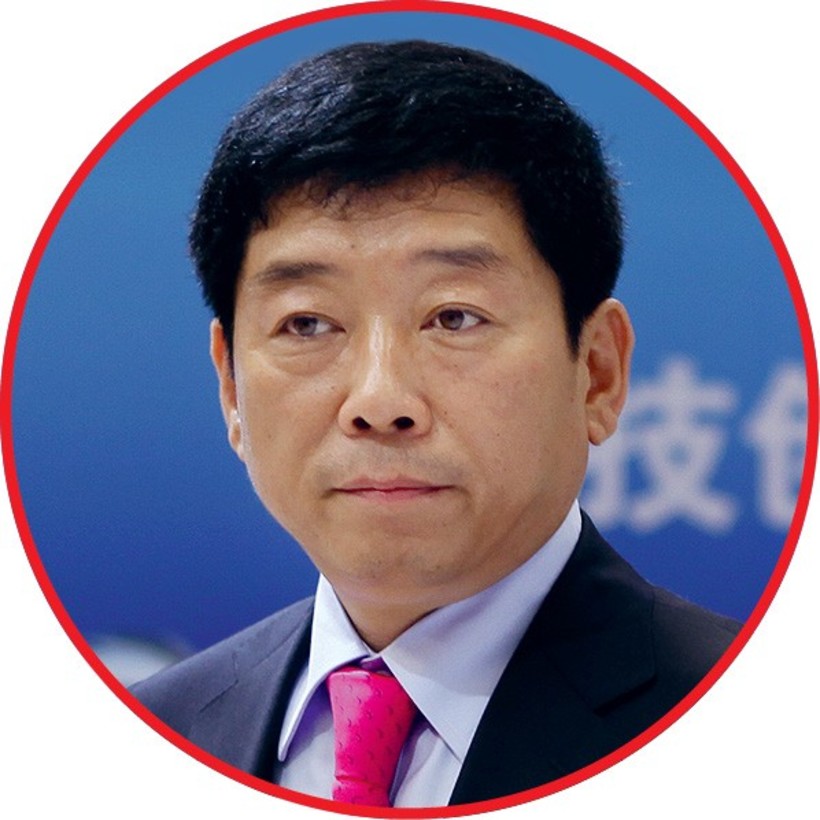 Wei Jianjun
Wei Jianjun
Great Wall Motors,
Cars
Wei Jianjun’s first job was to maintain steam boilers. However, by the time he turned 26 in 1984, he had founded Great Wall Motors. Initially, his automotive company only manufactured one model – a pick-up truck called Deer. It became popular with Chinese farmers because of its low price and decent quality. Gradually, the company moved away from pick-up trucks and hatchbacks; they started producing more prestigious SUVs, which account for nearly half of Great Wall’s entire output today.
The 51-year old Jianjun is known to maintain strict discipline. He is not on familiar terms with his subordinates, nor does he indulge in any vices. All of Great Wall’s managers go through a military-style, boot camp training, which has already become legendary. The newly hired managers, workers, and engineers are forced to perform strenuous physical exercises, march for hours on end, and do menial work in hot weather. Jianjun believes that this approach helps them develop stronger willpower, stamina, and team spirit.
Even by Chinese standards, his habits are unusual. The billionaire usually sleeps in a tiny room adjacent to his office, smokes cheap cigarettes, and hates when people order more food than they can eat. He also collects expensive Western cars so he can study their engines and design. Jianjun is always willing to admit to his own mistakes. For instance, in 2008, he made the impulse decision not to take part in the Detroit Car Show because he thought that the company’s new models were still not good enough.
In January 2014, Great Wall’s CEO postponed the launch of the flagship SUV Haval H8 by three months after the Chinese press made his life miserable. This decision cost the company $2.4 billion overnight. None of Great Wall’s commercial failures are ever hushed up though. Instead, they are displayed on the ‘Wall of Shame’ in the head office, along with photos of former employees convicted of bribery and other crimes against the company.
Improve a little every day
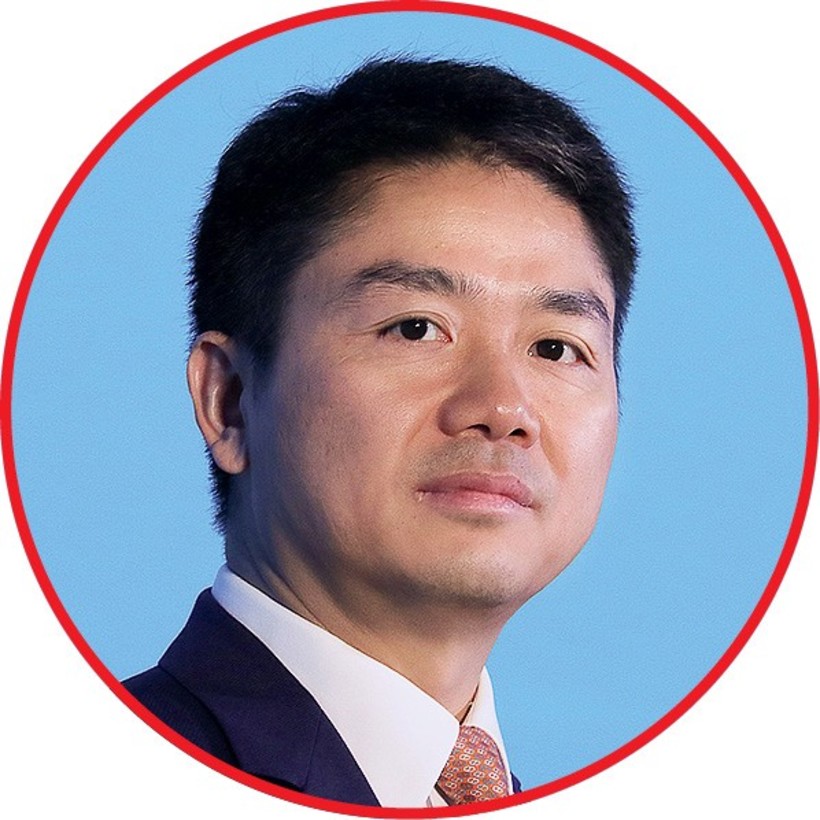 Liu Qiangdong
Liu Qiangdong
JD.com,
Online Commerce
Liu Qiangdong may be 41-years-old, but in terms of his net worth, he has already left Internet commerce guru Jack Ma far behind. Several generations of Qiangdong’s family made their living from commerce, but it took him a long time to join the business. In 1992, he was admitted to the People’s University of China and majored in sociology. Initially, he worked a job stuffing envelopes with marketing letters, receiving three fens per envelope. Even at that low rate, the young entrepreneur managed to earn up to 2,000 renminbi every month. In his fourth year of university, he opened his own restaurant, but it went bust and he ended up owing his creditors more than 200,000 renminbi. He ended up having to work for a Japanese company as a hired hand to pay back his creditors.
In 1998, Qiangdong repaid his debt, quit his job, and opened a store called JingDong Multimedia Products (JD for short). The store carried DVDs and computer hardware. By 2003, his small store’s business was struggling, along with the neighborhood where it was located. It was at that time that he had the idea to open an online store. Initially, it was called 360Buy, but it was later changed to what is now known as JD.com. What followed exceeded his wildest dreams – the company’s annual turnover grew by 200% and by 2010, its revenues exceeded 10 billion renminbi.
The store’s warehouse contains more than 30 million items, and 300 million customers buy at least one item every day. When customers started to complain about lengthy delivery times, Qiangdong opened his own courier service, which offered yet another competitive advantage. JD.com offers same-day delivery to 130 cities and municipalities in China. The company is also one of the largest property leaseholders with over 100 warehouses across China; they have a total floor space of 2.3 million square meters. In May 2014, Qiangdong made another decisive move – following the lead of Alibaba, one of his main competitor’s, he decided to float some of the JD.com stocks. The ensuing IPO proved that his strategy had been right. The company managed to raise $1.78 billion from the IPO, and the stock exchange placed its value at $26 billion. Liu Qiangdong’s personal net worth has grown from 20,000 renminbi (the amount he invested in his first store) to $7.1 billion.
I do not deny that low prices increase the scale of the company, but that is not our only goal. I would like to emphasize that you can’t have low prices without low costs. With annual sales in the billions, we can’t afford even a 1% loss
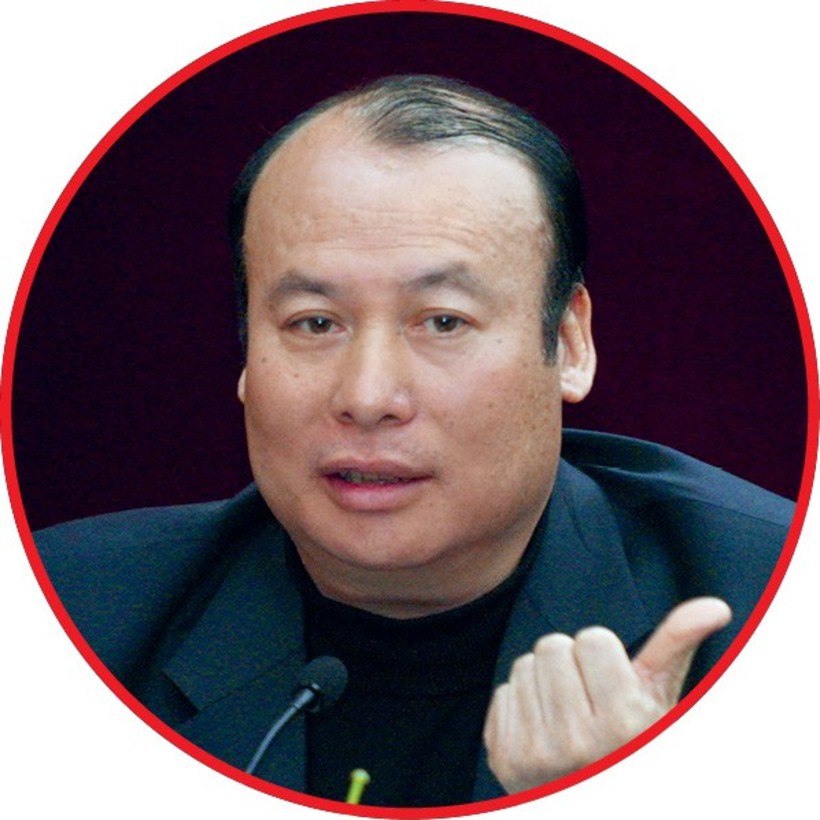 Lu Zhiqiang
Lu Zhiqiang
China Oceanwide Group of Beijing, Lenovo,
Commercial Property, Financial Services, Computers
Lu Zhiqiang is a former scientist, who left his job at the Academy of Sciences at the age of 40 to set up New Technology Delevoper, later known as Lenovo. This feat made him the ‘Godfather of Chinese Business’ in many people’s eyes. This story unfolded 31 years ago, and now his small homegrown factory is one of the largest computer hardware vendors in the world.
Initially, the company shipped and sold IBM PCs, which had just come into fashion. It wasn’t until several years later that Zhiqiang’s gamble paid off – his company went on to occupy 30% of the local market. However, he and his colleagues managed to pull off a veritable revolution in 1990 when they developed circuit boards and software for IBM computers that supported Chinese characters. His PCs, marketed under the brand name ‘Legend,’ proved a resounding success. Zhiqiang’s company instantly made it to the top of the list of Chinese computer makers.
When IBM decided to cut costs and outsource manufacturing overseas in the 1990s, they chose Lenovo as a partner and put the company in charge of assembly. By early 2000, IBM decided to do away with PC production altogether, pursuing only patents and systems integration business instead. It was at that time that the rest of the world learned about Zhiqiang and his company. Lenovo, the Chinese original equipment manufacturer (OEM), bought out IBM’s business and continued to manufacture computers, first under the American brand and later under its own. The acquisition cost the company $1.75 billion, and Lenovo’s head office was officially moved to New York City.
In 2011, Zhiqiang gave up his position as CEO and passed it to his close associate, Yang Yuanqing. But despite leaving his former role, he was not about to quit the business entirely. He still runs Oceanwide Real Estate, a large owner of real estate both in China and around the world. In December 2014, the company acquired a land allotment in downtown San Francisco; they are planning to use the space to build the city’s second tallest skyscraper, which will host a business center. Zhiqiang’s net worth is estimated at $7 billion.
How much will my money be worth in five years? This year, I made 2 billion yuan. In five years, that will turn into 20 billion yuan. This is accounting
in my mind
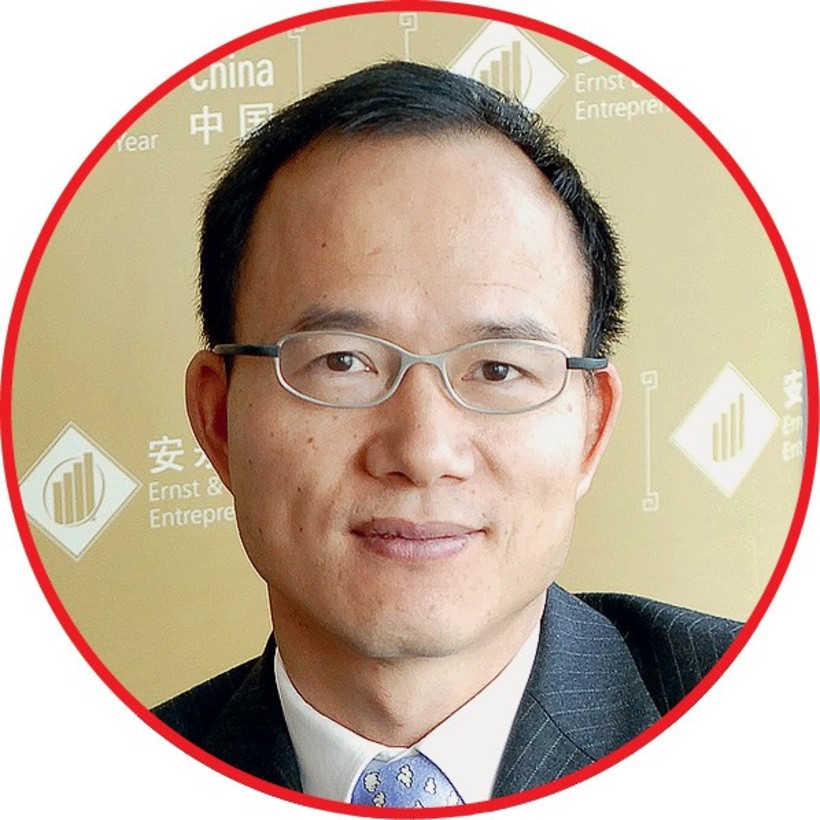 Guo Guangchang
Guo Guangchang
Fosun International,
Multi-industry Investments
Guo Guangchang, who is often referred to as China’s Warren Buffet, was born in 1967 to a family of peasants who survived the Cultural Revolution. However, unlike most of his peers, he managed to take full advantage of a good education. In 1989, he earned his Master’s degree in philosophy from Fudan University, where he later received an MBA as well.
It was during his time as a student that Guangchang tried his luck at business, selling bread to his hungry classmates. He made a meager 5 yuan every evening, but his monthly operating costs were only 30 yuan. In 1992, Guo Guangchang teamed up with his classmates to found Guangxin Technology Development. The company later became a founding member of his current empire’s backbone – the Fosun Group.
Guangxin studied various markets using sociological methodologies. This work was very much sought after by foreign companies vying for a niche in China. However, he made his first 100 million renminbi selling medical equipment used for hepatitis treatment. Since then, Fosun has been a major investor in the pharmaceutical and medical industries. Fosun also became one of the largest owners of commercial property in China.
Since 2010, Guangchang has been investing money in European and American companies and real estate. His largest acquisitions included a 10% stake in Club Med luxury resorts ($56 million), the Chase Manhattan Plaza skyscraper ($725 million), and 80% of Portugal’s Caixa Geral de Depósitos insurance branch ($1.4 billion). Fosun also tried to buy Forbes magazine but failed. Guangchang’s latest acquisition was a stake in Cirque Du Soleil. His net worth is estimated at $6.3 billion.
Our focus going forward is on sectors where we can upgrade life for China’s middle class: health, travel, leisure, education, and the Internet. We call it marrying China’s growth with global resources


